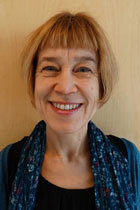Linking-in through education? Exploring the educational question in Africa from the perspective of flows and (dis)connections
Education is the fourth Sustainable Development Goal (SDG) and considered an important gateway to many other SDGs being achieved. Education is, however, frequently interpreted in terms of its technical aspects, i.e., furthering skills and knowledge and strengthening human capital for promoting development. By contrast, this paper focuses less on this technical aspect and instead analyses the current educational landscape in Africa as a field in which flows of investment, ideas, and people influence connections between Africans and the rest of the world. As an effect of the structural adjustment programs in the 1980s, public spending on education in many African countries went down, allowing private education initiatives to spring up. These were, for a large part, financed by Western and Arab countries. Over the last fifteen years, investment flows in education from emerging global powers like China, Brazil, Malaysia, and Turkey have contributed to an increasingly diversified educational landscape in Africa. This paper argues that these investments not only allow Africans to improve their educational levels but that these diverse forms of education also have an influence on connections and social orientations in African societies. Educational programs go together with specific worldviews. In addition, people develop their social networks through educational trajectories. Both orientations and connections influence people’s choices and opportunities in their further lives, and thus individual and societal development. Interestingly, often investments in education by external parties are not isolated endeavors, but also used as a means to get linked-in in local societies for such diverse purposes as religion or business interests. Illustrating my argument with examples taken from my research on Gulf charities and on Turkish schools in Africa, I will explore how the new connectivities that come with the changing educational landscape in Africa shape (possible) local development trajectories in the current era of intensified globalization characterized by intensified flows of capital, people, and ideas.
This article appeared in Sustainability, Issue 2, Volume 10, 2018.
Author(s) / editor(s)
About the author(s) / editor(s)

Mayke Kaag is a social anthropologist interested in processes of change and continuity in West and West-Central Africa. Her current research focuses primarily on African transnational relations, including land issues, transnational Islamic charities and engagements with the diaspora.

